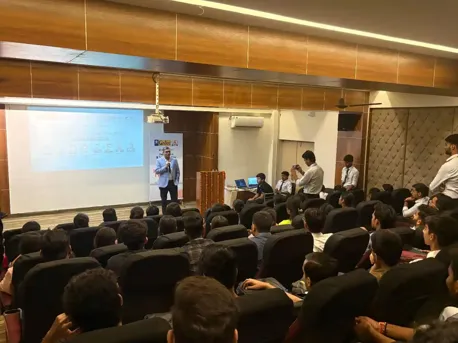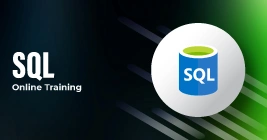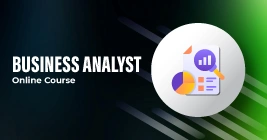Course Design By
Course Offered By

Riya Malhotra
Placed at Cognizant

Amit Joshi
Placed at IBM

Neha
Placed at Deloitte

Kunal Patil
Placed at Capgemini

Pooja
Placed at Accenture

Rohit
Placed at Wipro

Sneha Kulkarni
Placed at Infosys

Aarav Mehta
Placed at TCS
The Data Analyst Course explains how data is collected, cleaned, and studied to support business decisions. This Data Analyst Online Course focuses on real business problems and how data is used daily in companies.
What You Get
Course Design & Approved By

Nasscom & Wipro
This Data Analysis Online Course is taught in a simple and clear way. Every topic is explained with examples so you understand both concepts and real usage.
Get a peek through the entire curriculum designed that ensures Placement Guidance
Course Design By


Course Offered By

Top Job Profiles:
Average Salary Range:
Top Job Profiles:
Average Salary Range:
Top Job Profiles:
Average Salary Range:
Top Job Profiles:
Average Salary Range:
Start your learning journey with our Data Analysis Online Training. Enroll now and build strong data analysis skills for your career.
Get coaching from an instructor with over 10 years of true industry experience as a Data Analysis Course in India and Data Analysis Online Training. Your instructor will provide you with actual industry experie

Croma campus is one of the best institute for training of IT professional jobs. It is one of the most prestigious and certified organizations that has been associated with the top most MNCs. Croma campus is situated in Noida which is really famous for its innovative and technical teaching methods. So, if you want to get linked with Data Analytics then do a Collab with Croma Campus.
Data Analytics is a process of examining datasets to know about the information they contain. There are a lot of works and jobs under Data Analytics. The first thing you need to do is to always keep your profile updated on LinkedIn because they are directly associated with Data Analytics. So, if you get an Data Analytics certificate you can work as Data Analyst.
Data Analytics is nowadays becoming a very important certification that can lead you to get a good job. To get any Data Analyst job you need to get a certification in Data Analytics. There is a list of things after which you can get a certificate that contains in-depth training, many simultaneously exams, live demos, and other industrial projects that can make you a perfect Data Analyst. After all this training, you can get an Data Analytics certification.
Croma Campus India program sizes a powerful training tool that can be applied in classrooms as well as in manufacturing. We offer a wide range of agendas for Live Project Data Analytics Training in India under the leadership of the best industrial experts. We are always awarded for the past 10 years as the Best Data Analytics Online Training in India.
The ways to connect Croma Campus
You will be able to clean data properly, identify any errors, understand data patterns, and generate clear reports that will be helpful for company activities.
As part of this Data Analysis Online Course, you’ll actually work on real data files to correct problems, organize information, and better grasp what’s being shown in the data.
The Data Analytics Online Training also has practice problems and projects using actual business data, not just theory.
The Data Analyst Course informs learners of ways to find absent numbers and eliminate incorrect ones while ensuring that numbers are accurate before usage.
You will find out how to write simple reports to explain the results in simple terms in such a way that teams and management are able to understand.
+ More Lessons
Course Design By

Nasscom & Wipro
Course Offered By

Croma Campus

Scenario: Keeping dashboards updated
Outcome: Dashboards always showed correct data

Scenario: Making easy sales reports
Outcome: Managers could understand the reports

Scenario: Finding risky cases in data
Outcome: Risks were easier to spot

Scenario: Fixing messy data
Outcome: The data was clean and ready

Scenario: Understanding product data.
Outcome: Product performance became clear.

Scenario: Finding mistakes in data
Outcome: The data became reliable.

Scenario: Learning about customers from data.
Outcome: The company understood customers more clearly.

Scenario: Understanding sales using past data.
Outcome: The team could understand sales better.
Company: Capgemini
Location: Hyderabad
Experience: 0–2 Years
Required Skills: Managing data, SQL basics, data visualization & reports
Company: Infosys
Location: Pune
Experience: 0–2 Years
Required Skills: Analyzing data, Excel, Power BI or Tableau, making reports
Company: TCS
Location: Bangalore
Experience: 0–2 Years
Required Skills: Cleaning and organizing data, using Excel, basic SQL.
Explore related courses that help enhance your data analytics skills.

Get hands-on with the Power BI tool to create dashboards, visualize the data, and make appropriate decisions.

Get knowledge of advanced Excel tools and formulas to analyze and present reports in a professional format.

Master SQL to manage, query, and effectively analyze your data with ease in the real world.

Analyze data in businesses, generate reports, make appropriate decisions, and much more with this online course.
For Voice Call
+91-971 152 6942For Whatsapp Call & Chat
+91-9711526942